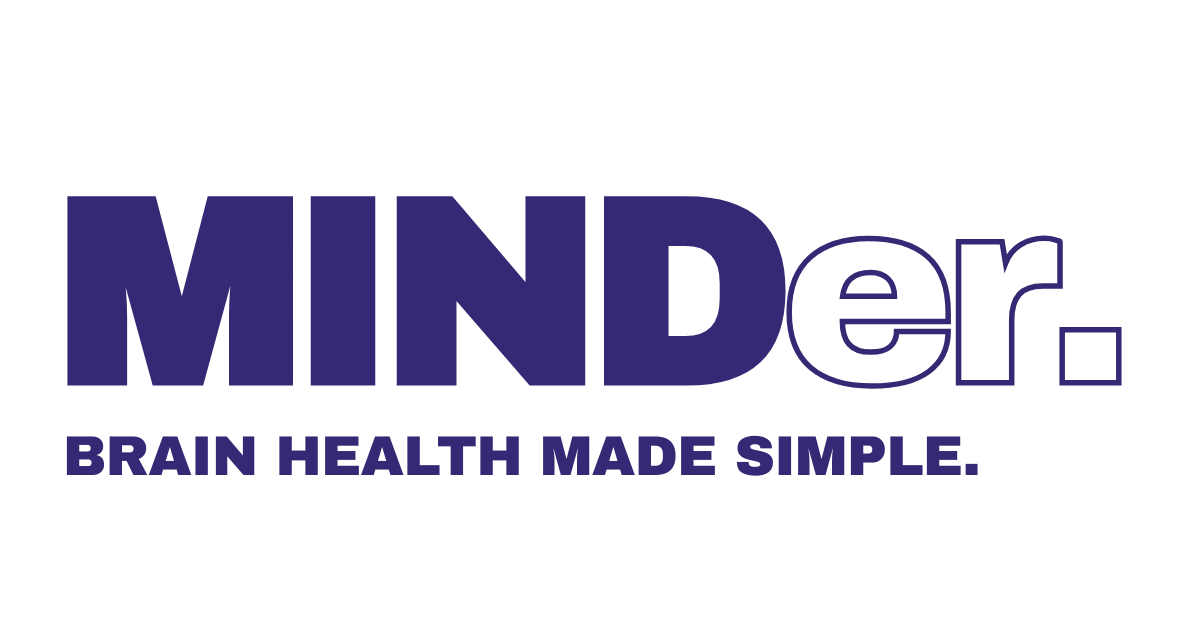Dementia Tests
Can you 'test' for Dementia?

You can't test for Dementia itself, but you can test for Cognitive Impairment
We can test our mental abilities to see if they're impaired, but only medical interventions (Brain imaging or spinal fluid tests) can tell us if it's due to Dementia or not.
Dementia isn't one thing. A Dementia causes loss of mental ability to the point where someone can't live independently. It can be caused by several different conditions.
Disrupting brain function causes issues with abilities, this is called a cognitive impairment. Every area of the brain is responsible for something different, so depending on what area is disrupted, symptoms can be different.
So what are the tests?
Chances are if you're looking for a test, you feel something is wrong, and you want to know if it's bad enough to be concerned about or you want to know what's causing it.
Comparing yourself to yourself is the most accurate way to assess change
Private psychology practices require several hours and several hundred pounds to do neuropsychological assessments.
Commonly impacted cognitive functions
Memory
The most well known symptom of dementia is problems with memory formation and recall.
Decision Making
People can become easily overwhelmed and struggle to plan and coordinate themselves.
Perception
Difficulty differentiating between things, visually and auditory
Language
Finding words and following complex conversations can become much harder
Cognitive Screeners
There are multiple versions suggested for use in the NHS:
-
The 10-point cognitive screener (10-CS)
-
The 6-item cognitive impairment test (6CIT)
-
The Memory Impairment Screen (MIS)
-
The Mini-Cog
-
Test Your Memory (TYM)
These tests are designed to be used as part of a wider evaluation by a certified health professional, their results require a lot of contextual consideration to interpret.
All have one big issue
A result classified as 'impaired' requires an already obvious significant issue.
Earlier stages of decline aren't 'detected' even if something feels 'off'.
They very crudely test multiple cognitive areas like - short term memory, perception, navigation, verbal ability, coordination.
Importantly, they are not specific to dementia testing.
Scoring is based off population averages.
They don't account for your personal baseline levels of intelligence, education, language etc.
Leading to potential false positives / negatives.
They also can't tell why you're impaired. Dementia shouldn't be the first assumption.
Commonly performed by Psychologists who assess you based on both your score & how you complete the test.
Your GP can refer you to a specialist memory clinic or clinical psychologist to get evaluated if they deem your issues to be severe and not easily attributable to other conditions.
The require you to complete very specific tasks designed carefully to engage a certain cognitive skill.
If you only do these once, and your score is compared to averages. They don't account for your personal baseline levels of intelligence, education, language etc.
The most accurate way to assess changes in your abilities is to test them over time, so you compare yourself to yourself.
What's the alternative?

Eliminating other common possible causes of cognitive issues.
Cognitive issues can be caused by things that are temporary or treatable, rather than be indicative of the wholescale systemic decline that leads to Dementia.
What else could it be?
Can I test them?
These should be explored to help determine the causes of issues.
When exploring with a health professional it's important to note all relevant potential contributors.
There are several hormonal or metabolic factors that contribute indirectly to cognitive change:
Thyroid disorders are noted as common reversible causes of cognitive symptoms in clinical settings.
Menopause or sex hormone changes.
Other forms of hormonal dysregulation and metabolic changes (especially insulin resistance and cortisol imbalance) can also cause cognitive symptoms directly or indirectly.
These can be ruled out by blood tests.
Nutritional deficiencies, particularly of vitamin B12 and folate, can cause or mimic cognitive impairment.
1 in 5 over 60's are deficient in B12 and Vitamin D is deficient for most adults especially in winter, even more so for those with darker skin (due to reduced ability to produce it in the skin)
As we age, absorption can be reduced by various mechanisms as well as a reduced efficiency in using nutrients in our bodily processes, which results in sub-optimal function despite a similar diet to our younger years.
MINDer Protect 40+ has been designed specifically to help maintain optimal levels of important nutrients for Brain health, eliminating the need to worry about these causes and maintain a sharp mind.
Current levels can be measured by Blood tests.
Conditions such as Depression and Anxiety are not just mood disorders, they can impact your wider cognitive abilities such as focus and memory.
Chronic stress can also really impact our ability to focus and think clearly, often resulting in a vicious cycle that perpetuates more stress. Similarly, sleep deprivation accumulates to do the same thing.
In an ever-demanding world, it's tempting to push through or play down the extent of your challenges, or feel like we have no choice but to do so. However, these have tangible long and short term impacts on your health. These can often creep up on people so they're unaware of the extent of the changes - it's why it's so important for us to check in with each other.
Both sleep and stress are described as part of the “biological and behavioural processes” that connect many of the 14 official risks.
-
Poor sleep and chronic stress can both impair brain repair processes.
-
Both contribute to neuroinflammation, vascular strain, and reduced cognitive reserve.
-
A urinary tract infection (UTI) can sometimes look a lot like dementia, especially in people over 65.
When the body is fighting an infection, it can trigger sudden confusion, memory problems, irritability, disorientation, or even unusual behaviour. This happens because infection and inflammation can temporarily affect how the brain works.The key difference is that UTI-related confusion comes on quickly and is reversible, while dementia develops slowly over years.
So if someone suddenly seems more forgetful, confused, or “not themselves,” it’s important to rule out a UTI or other medical issues before assuming it’s dementia — a simple urine test and antibiotics can often resolve the symptoms.
Certain medications and medical exposures can impair cognition, either temporarily or in a dose-related way.
For example:
-
Anticholinergic drugs (used for depression, bladder control, and allergies) can worsen cognitive function, especially in older adults.
-
Polypharmacy (taking multiple medications) increases risk of confusion, delirium, and medication-related cognitive decline.
-
Hospitalisation and anaesthesia in older adults are cited as triggers for acute cognitive deterioration, sometimes mistaken for dementia.
Hospitalisation, delirium, and infection are associated with long-term cognitive deterioration.
This means that even if someone recovers, these episodes can accelerate cognitive aging or cause temporary but noticeable impairment.-

Risk & Function biomarkers
Blood test
47 Biomarkers
Test for all of the risk & function limiting biomarkers.
Establish whether you're putting yourself at higher risk and rule out common causes of cognitive symptoms before taking your next steps.
Plus key markers for kidney and liver health, iron levels, red and white blood cell status.
Sex Hormone
Thyroid Hormone
Nutrition
10% off applied at checkout

At home & in clinic available
Some common symptoms can't be 'tested' for
Other things you should note changes in if you're concerned:
Sleep
Sleep disorders can be both a contributing cause and a symptom of poor brain health.
This is the main early symptom of Lewy Body Dementia, one of the 4 most common types.
Mood
Depression & Anxiety can be caused by the disruption to the brain.
Changes like this are the first signs of early onset Alzheimer's (40s/50s) unlike memory loss which is more common over 65s.
This is an inherited disease caused by 'faulty' genes.
Personality & Behaviour
Things like impulsivity and agitation, apathy, often big changes in behaviour.
This is the prime symptom of Frontotemporal Dementia, which is early onset 40-60 years old.
Issues arn't all about memory, it's important to pay attention to changes in anything your Brain's responsible for. This can help doctors get to the bottom of symptoms.
Sleep disorders can be both a contributing cause and a symptom of poor brain health.
This is the main early symptom of Lewy Body Dementia, one of the 4 most common types.Depression & Anxiety can be caused by the disruption to the brain.
Changes like this are the first signs of early onset Alzheimer's (40s/50s) unlike memory loss which is more common over 65s.
This is an inherited disease caused by 'faulty' genes.
Things like impulsivity and agitation, apathy, often big changes in behaviour.
This is the prime symptom of Frontotemporal Dementia, which is early onset 40-60 years old.

The Brain MOT
Tracking cognition for peace of MIND
Have a clear history of your cognitive abilities for when you need it.
Tools to help you record symptoms and checklists to communicate the right things, so you get the help you deserve from your Doctors.
Including symptom tracking and summaries to help you communicate your concerns.
.png)
Summary
1. It's important to investigate ASAP, a lot of cognitive issues are treatable.
2. Screening tests are not for you to use, they can't tell you if you have Dementia.
3. Make sure you are aware of and rule out all common and easy reversible causes of cognitive changes.
4. Advocate for yourself with comprehensive symptom notes and timelines, make it as easy as possible for Doctors.
%20(1).png)
Brain Health made easy
Free Brain Tips
Low effort, high impact ways to protect your brain for short and the long term, in your inbox.
Share the site





